Making a Statement to Police: What to Expect
Did you know that your statement to the police can have significant legal implications? When reporting a crime, you may be asked to provide a statement that becomes a crucial piece of evidence in the investigation. It’s important to understand the consequences of your statement and how it can impact the outcome of the case.
When making a statement to the police, honesty and accuracy are paramount. Even if discussing the details of a crime committed by someone you know is difficult or embarrassing, it’s crucial to convey all the necessary information. Feeling nervous or frightened is normal, but ensuring you provide a truthful account is essential.
During the statement process, you have the right to have someone accompany you for support. It’s advisable to carefully review your statement before signing it to ensure its accuracy. In this article, we will explore what happens when you make a statement to the police, the importance of legal representation, what to include in your statement, and more.
Key Takeaways:
- Making a statement to the police can have significant legal implications. It becomes a crucial piece of evidence in the investigation.
- When making a statement, honesty and accuracy are paramount, even if discussing difficult or embarrassing details.
- You have the right to have someone accompany you during the statement process.
- It’s important to carefully review your statement before signing to ensure its accuracy.
- Legal representation can help protect your rights and navigate the statement process.
What Happens When You Make a Statement to the Police?
When you make a statement to the police, it’s important to understand the process and the impact it can have on your court case. The police will ask you questions to gather all relevant information about the incident. It is crucial to answer truthfully and take your time to provide accurate details. Your statement can be used as evidence in court, which makes it a significant factor in the outcome of your case.
During the police interrogation process, it is essential to be aware of your rights. In Canada, although there is no direct equivalent to the Miranda rights, similar principles exist to protect individuals during questioning. You have the right to remain silent and the right to have legal representation present. Understanding your rights can help you navigate the statement process more effectively and safeguard your legal interests.
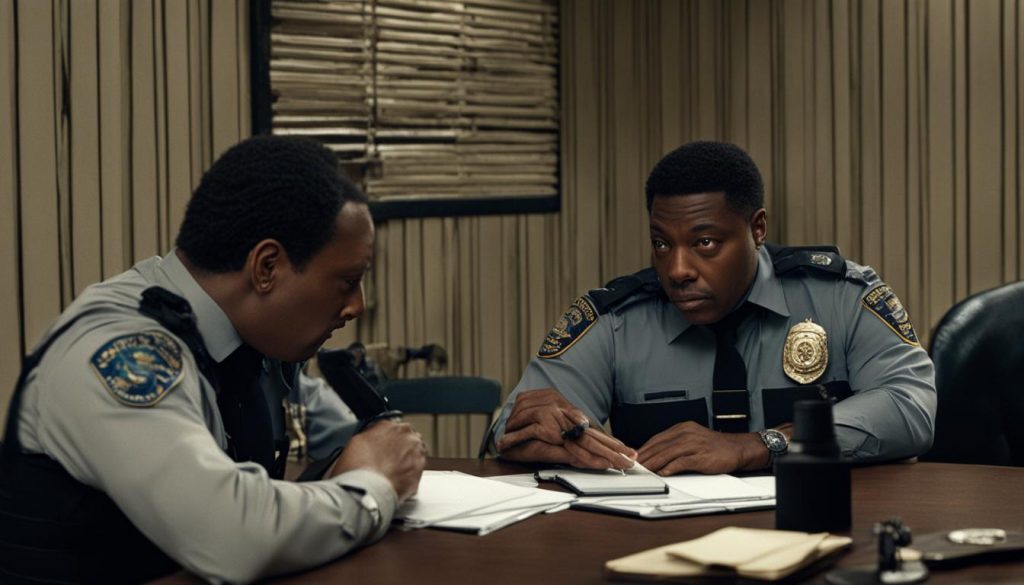
A clear understanding of your Miranda rights can prevent unintentional self-incrimination and ensure that your statement is made voluntarily. By exercising your right to remain silent or by having a lawyer present, you can protect yourself during police questioning. Legal representation can guide you in providing the necessary information while avoiding potential pitfalls that could negatively impact your case.
When making a statement to the police, it is crucial to think carefully about the words you choose and the information you provide. Your statement should be truthful and accurate, focusing on the relevant details of the incident. Providing a concise and coherent account can strengthen your position and contribute to a more robust case for the prosecution or defense.
The impact of your statement reaches beyond the immediate investigation. If the case proceeds to court, your statement may be provided to the accused person’s lawyer and used to cross-examine you during the trial. It is vital to provide a consistent and reliable account of the events to maintain your credibility and ensure a fair judicial process.
The Importance of Legal Representation
When making a statement to the police, it is crucial to understand the importance of having legal representation present. By having a lawyer by your side, you can ensure that your rights are protected throughout the process and that the statement is conducted fairly.
Legal representation plays a vital role in advising you on what to say and what not to say during police questioning. They have the expertise to navigate complex legal issues that may arise, ensuring that you fully exercise your rights and protect yourself.
Having a lawyer present can help prevent any potential misunderstandings or discrepancies in your statement. They can guide you in providing accurate and truthful information while avoiding any pitfalls that may be detrimental to you. This can ultimately improve your chances of a fair outcome in the legal process.
Remember, exercising your right to legal representation is a fundamental part of safeguarding yourself when interacting with the police. It allows you to confidently navigate the statement process, knowing that you have someone advocating for your best interests.

| Benefits of Legal Representation |
|---|
| Protects your rights during police questioning |
| Guides you on what to say and what not to say |
| Navigates complex legal issues that may arise |
| Prevents misunderstandings or discrepancies in your statement |
| Improves your chances of a fair outcome in the legal process |
What to Include in Your Statement
When making a statement to the police, it is crucial to include as much relevant information as possible. Providing a detailed and accurate account of what happened is essential for a thorough investigation. Here are some key points to consider including in your statement:
- Descriptions of people involved: Provide physical descriptions of individuals who were present during the incident.
- Witnesses to the crime: Include the names and contact information of any witnesses who saw what happened.
- Pertinent details: Note any important information such as vehicle registration numbers, license plate numbers, or identifying marks on stolen or damaged property.
It’s important to remember that even if some details may be difficult or embarrassing to discuss, it is crucial to include them in your statement. Leaving out important information could have unintended consequences for the investigation. If you remember additional details later, make sure to write them down and contact the police.
Providing a comprehensive statement can help ensure that the investigation is thorough and accurate. The information you provide may have legal implications and can potentially impact the outcome of the case.
Giving a Written Statement or Video Recorded Statement
When it comes to making a statement to the police, you may have the option to choose between providing a written statement or a video recorded statement. The decision on which method to use can depend on various factors, including your age, the nature of the case, and whether you are considered vulnerable or intimidated as defined by the law.
If you opt for a written statement, you will typically meet with a police officer who will record your account of the incident. It is crucial to take your time and provide an accurate and complete account, ensuring that all the necessary details are included. Once you have written your statement, it is essential to review it carefully for accuracy and make any necessary corrections before signing it.
Alternatively, a video recorded statement may be used, particularly in cases involving young individuals or sensitive situations. This method allows you to provide your account of the incident on video, which can be more beneficial in capturing emotions and non-verbal cues. It is important to remember that both a written and video recorded statement can be used as evidence in court proceedings.
| Written Statement | Video Recorded Statement |
|---|---|
| Typically recorded with a police officer | Allows for the capturing of emotions and non-verbal cues |
| Important to review for accuracy and make corrections if necessary | Provides a visual record of your account |
| Can be used as evidence in court proceedings | Offers a more dynamic presentation of your statement |
Whether you choose to give a written statement or a video recorded statement, it is essential to remember that the accuracy and completeness of your account can have a significant impact on the court case. Therefore, it is crucial to provide a truthful and detailed statement to ensure a fair and just outcome.
Follow-Up and Court Proceedings
After making a statement to the police, it is important to recognize that the investigation may require further discussions with you. The police may need to clarify certain details or gather additional information to ensure a thorough examination of the case. It is crucial to cooperate with their requests and provide any necessary assistance. By doing so, you can contribute towards achieving a more comprehensive understanding of the incident.
If the case progresses to court, it is common for a copy of your statement to be provided to the accused person’s lawyer. Your statement holds significant weight as it may be used as evidence during the court proceedings. Moreover, your statement can serve as a valuable tool in refreshing your memory when presenting your account in court. It is vital to remember that the accuracy and completeness of your statement can greatly influence the outcome of the case, making it imperative to provide a truthful and detailed account of the events.
Cooperation with the police and the judicial system is essential to ensure justice is served. Your commitment to providing an accurate and thorough statement can contribute significantly to the overall impact of the case and help facilitate a fair resolution. By understanding the potential consequences of your police statement and its importance in court proceedings, you can actively participate in upholding the integrity of the legal process.
- Quebec Police Officer Salary Insights 2023 - July 13, 2025
- Canada Arrest Protocol: What Police Say Upon Arrest - June 12, 2025
- Can Police Disclose Who Reported You? Find Out Here - June 6, 2025
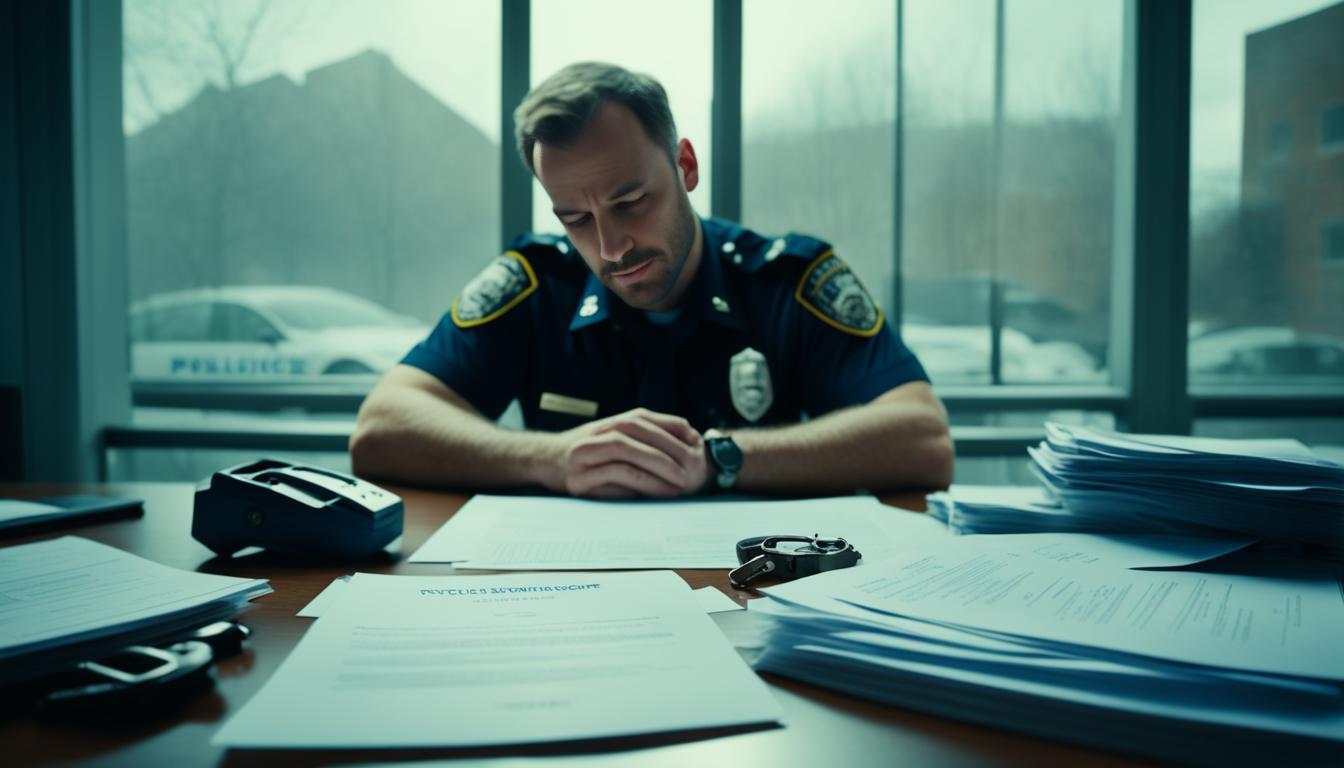




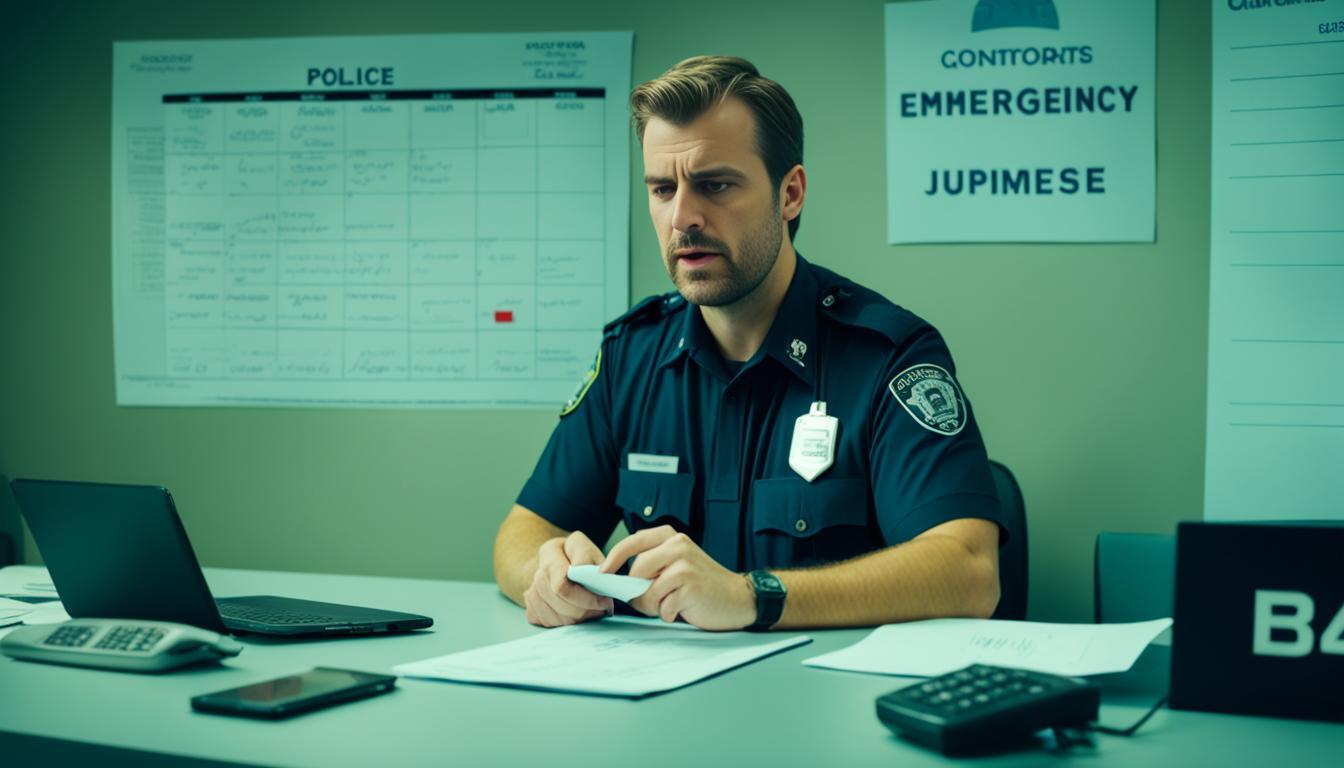
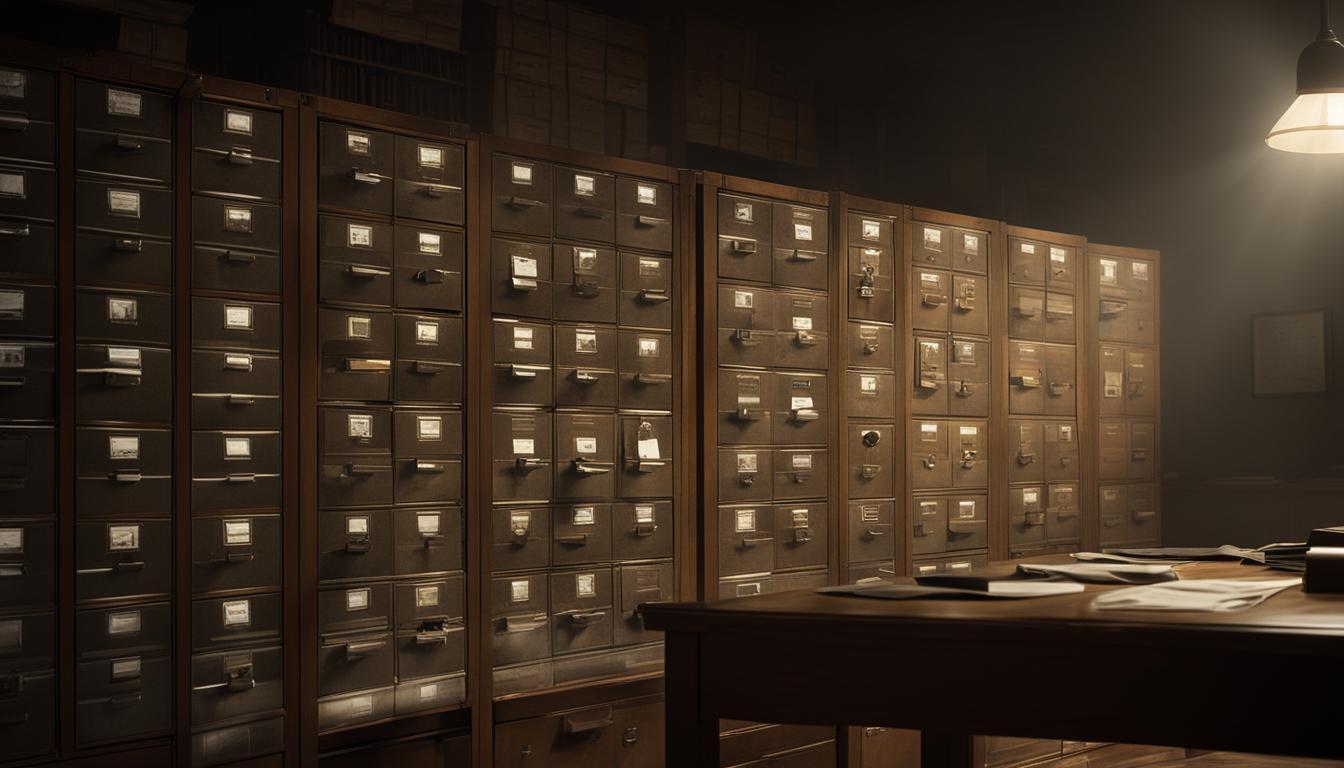


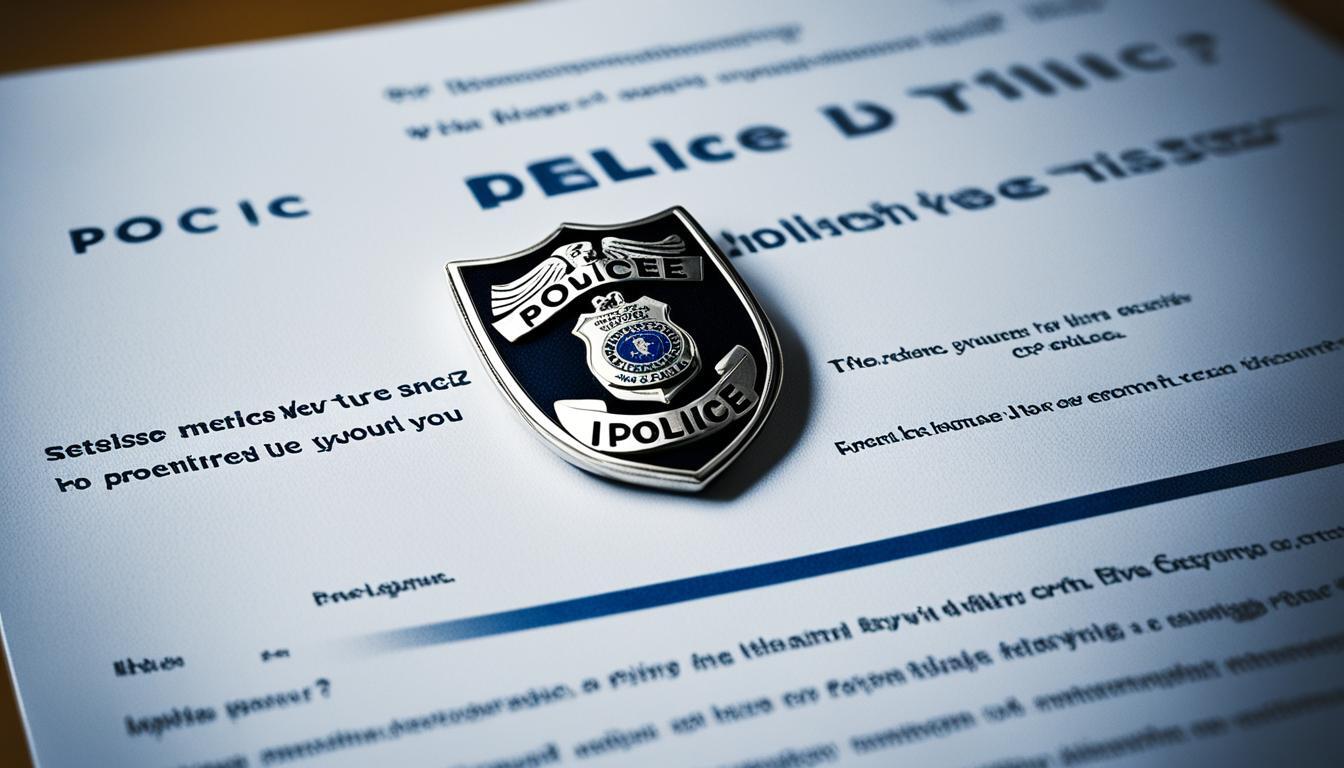










Post Comment